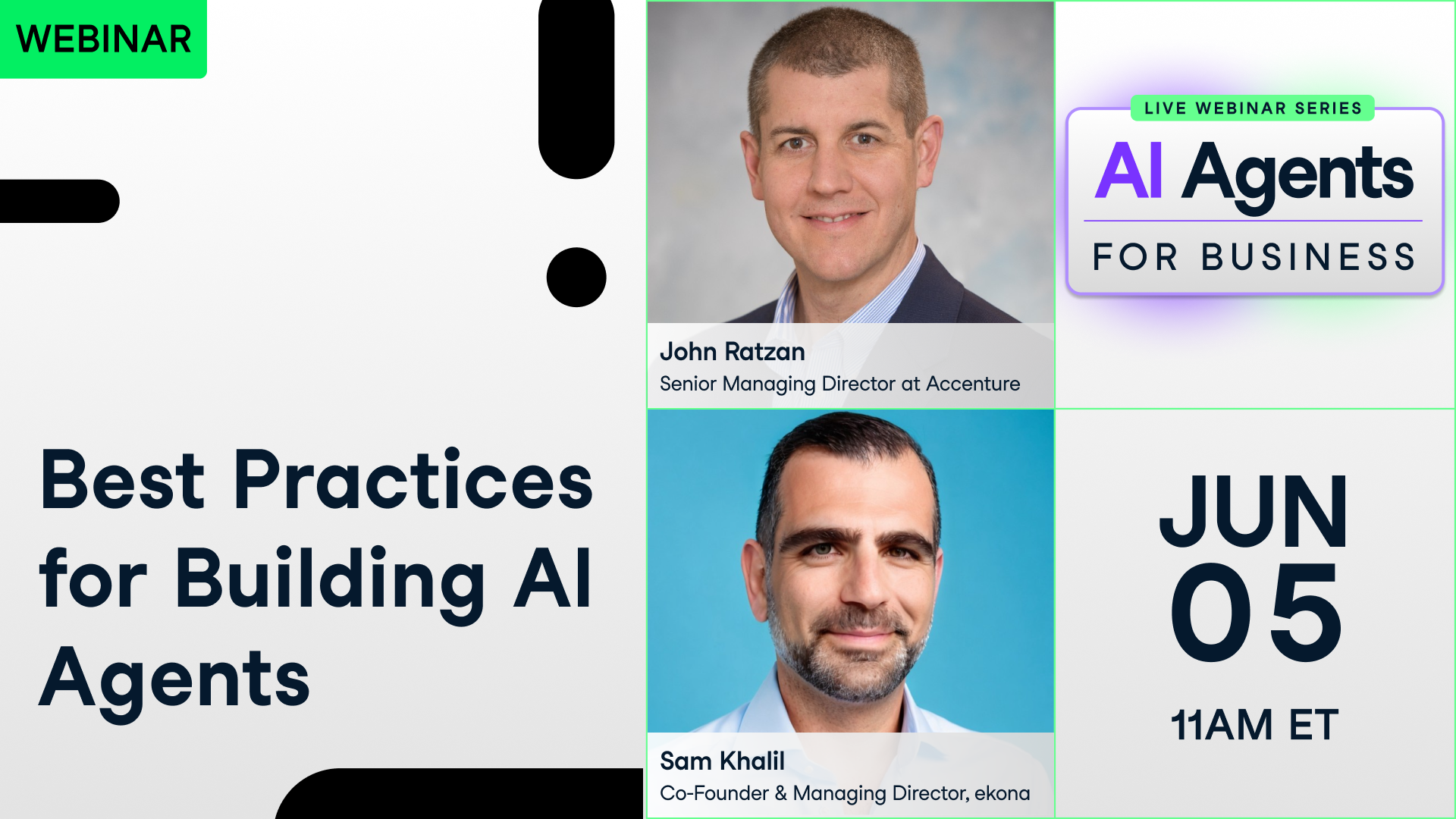Speakers
Training 2 or more people?
Get your team access to the full DataCamp library, with centralized reporting, assignments, projects and moreAI Agents For Business: Best Practices for Building AI Agents
June 2025
Related
webinar
AI Agents For Business: The Leader's Guide to AI Agents
Philippe Wellens, CEO & Co-founder at Kleio, Matt Glickman, CEO & Co-founder at Genesis Computing, and Rahul Sonwalker, CEO & Co-founder at Julius AI, share how to successfully integrate AI agents into your business strategy.webinar
AI Agents For Business: AI Agents and the Future of Work
Sanjay Srivastava, Chief Digital Officer at GENPACT, and Marianna Bonanome, Head of AI Strategy & Partnerships at SandboxAQ, discuss how AI agents are transforming business operations and workforce planning.webinar
AI In The Enterprise: Developing AI Talent
Damien Herrick, Ita Petrika-Lindroos, and Thomas Bodenski discuss strategies for developing AI talent. Learn which AI skills and roles are in demand, how to attract the right talent, and how to build AI literacy across your organization.webinar
Increasing Your Organization's Data & AI Maturity
John Thompson, the Head of AI at EY, and Robin Sutara, a Field Chief Data Strategy Officer at Databricks, teach you how to assess your data and AI maturity, and how to improve it.webinar
Best Practices for Developing Generative AI Products
In this webinar, you'll learn about the most important business use cases for AI assistants, how to adopt and manage AI assistants, and how to ensure data privacy and security while using AI assistants.webinar

